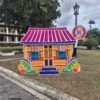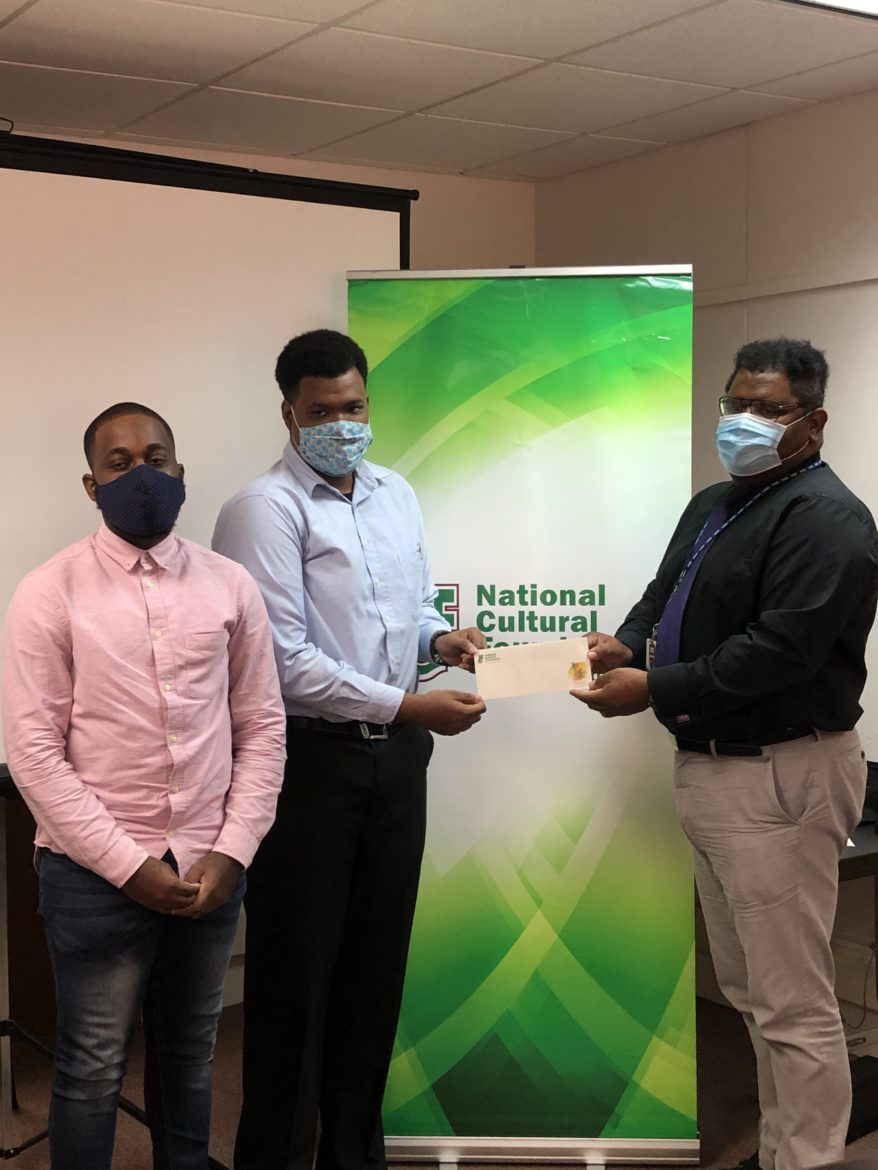
Introduction
The Cultural Industries Development Act was proclaimed in 2015, and provides a legal framework for the development of the cultural industries sector through duty-free concessions for people with businesses in the creative sector, for “tools of trade” (i.e. materials and equipment used to create products and services).
The duty-free concessions are available once the conditions set out in the Cultural Industries Development Act, Part IV (General) or Part VIII (Audio-Visual Practitioners) are fulfilled, and approval has been granted by the Minister of Creative Economy, Culture and Sports.
For Queries, please contact:
Lisa Howell – 4176646/lisa-howell@ncfbarbados.org
IMPORTANT
Apply in advance! – The process can take several months and thus it is best to apply well in advance of the expected import time.
Not Retroactive! – The duty-free concessions are not retroactive i.e. they cannot be claimed on items already imported or on island even if they are still in the Port.
ASYCUDA is Mandatory! – All items for duty-free waivers must be listed in the online Automated SYstem for CUstoms DAta (ASYCUDA) or the duty-free concessions will not be accessible. Duty-free waivers can only be conducted using the ASYCUDA system so all shipments must be routed through a customs broker or the individual importing the equipment must have access to the ASYCUDA system themselves. Please contact the Customs & Excise department for further information on ASYCUDA.
Customs Number Needed! – You MUST have a customs number which will be entered in the ASYCUDA system. You can apply to the Customs Department for this, Click HERE for the form. [Do NOT return this form to NCF.]
Tools of the Trade ONLY! – Duty free waivers are available ONLY for tools of the trade which have been identified in the Second Schedule of the Act. Please click HERE or read the Act to view the list.
License cannot be changed! – Once a licence has been issued, no items can be added to it so please ensure that you carefully review your project and note all items you will need. Licenses are valid for one (1) year.
VAT is not a Duty – Therefore it cannot be waived and must still be paid.
Nb. Procedures subject to change in accordance with government and company policy.
General Process
Step 1: Registration -The applicant must be a cultural practitioner which is defined in Part 1, Section 2 (1).
Registration on the national database (barbadosartists.bb) is mandatory for verification purposes. This registration process contains nine steps, and concludes with the issuing of a certificate.
It must be noted that registration is simply the first step of the duty free application process and does not entitle the registrant to concessions, simply to the right to apply. Once approval as a cultural practitioner is given on the artists’ registry, an automatic email is sent to the user indicating such and noting to whom the written application for duty-free concessions must be sent.
NB. Be sure to make a note of your approved registration number.
Also note that once approved, registration does not need to be redone.
Step 2: A Cultural Project must be submitted – Duty free concessions on imports that represent tools of trade, i.e. materials and equipment used to create products and services, must be tied to a cultural project as noted in Part III and IV of the Act. A form must be filled out which stipulates all information as per Section 12 & 13 of the Act, this form is available for download HERE.
Exceptions: The process for bandleaders applying for concessions for the Crop Over festival and for persons in the Audio Visual sector is different and can be found below.
Step 3: Quotations/Invoices & Customs Documents – Submit a detailed list of items from your intended suppliers with either quotes or pro-forma invoices for them, as well as an ASYCUDA documents from an authorised customs broker showing the amount of taxes to be waived.
Step 4: Ministerial Approval
Following the fulfillment of all conditions and submission of all documents, the applications are submitted for ratification to the Minister in the Prime Minister’s Office with responsibility for Culture and the National Development Commission.
Step 5: License Granted
Once ratified, a Licence is issued to the applicant as per Section 19 of the Act.
Step 6: Waiver Granted
The license, accompanied by the previously submitted list of items to be waived, is then forwarded to Customs to designate the individual or entity as being approved to receive duty-free concessions on these particular items.
Process for Bandleaders
Step 1: Registration -The applicant must be a cultural practitioner which is defined in Part 1, Section 2 (1).
Registration on the national database (barbadosartists.bb) is mandatory for verification purposes. This registration process contains nine steps, and concludes with the issuing of a certificate.
It must be noted that registration is simply the first step of the duty free application process and does not entitle the registrant to concessions, simply to the right to apply. Once approval as a cultural practitioner is given on the artists’ registry, an automatic email is sent to the user indicating such and noting to whom the written application for duty-free concessions must be sent.
NB. Be sure to make a note of your approved registration number.
Also note that once approved, registration does not need to be redone.
Step 2: Submit a Letter requesting the incentives
A letter requesting the incentives must be submitted – a template can be found HERE
Step 3: Quotations/Invoices & Customs Documents – Submit a detailed list of items from your intended suppliers with either quotes or pro-forma invoices for them, as well as an ASYCUDA documents from an authorised customs broker showing the amount of taxes to be waived.
Step 4: Ministerial Approval
Following the fulfillment of all conditions and submission of all documents, the applications are submitted for ratification to the Minister in the Prime Minister’s Office with responsibility for Culture and the National Development Commission.
Step 5: License Granted
Once ratified, a Licence is issued to the applicant as per Section 19 of the Act.
Step 6: Waiver Granted
The license, accompanied by the previously submitted list of items to be waived, is then forwarded to Customs to designate the individual or entity as being approved to receive duty-free concessions on these particular items.
Process for Audio Visual Practitioners
Step 1: Registration -The applicant must be a cultural practitioner which is defined in Part 1, Section 2 (1).
Registration on the national database (barbadosartists.bb) is mandatory for verification purposes. This registration process contains nine steps, and concludes with the issuing of a certificate.
It must be noted that registration is simply the first step of the duty free application process and does not entitle the registrant to concessions, simply to the right to apply. Once approval as a cultural practitioner is given on the artists’ registry, an automatic email is sent to the user indicating such and noting to whom the written application for duty-free concessions must be sent.
NB. Be sure to make a note of your approved registration number.
Also note that once approved, registration does not need to be redone.
Step 2: Submit a Letter requesting the incentives (Part VII, section 39 indicates that the audio-visual practitioners do not need a cultural project to access the incentives)
A letter requesting the incentives must be submitted – a template can be found HERE
Step 3: Quotations/Invoices & Customs Documents – Submit a detailed list of items from your intended suppliers with either quotes or pro-forma invoices for them, as well as an ASYCUDA documents from an authorised customs broker showing the amount of taxes to be waived.
Step 4: Ministerial Approval
Following the fulfillment of all conditions and submission of all documents, the applications are submitted for ratification to the Minister in the Prime Minister’s Office with responsibility for Culture and the National Development Commission.
Step 5: License Granted
Once ratified, a Licence is issued to the applicant as per Section 19 of the Act.
Step 6: Waiver Granted
The license, accompanied by the previously submitted list of items to be waived, is then forwarded to Customs to designate the individual or entity as being approved to receive duty-free concessions on these particular items.
For Queries, please contact:
Lisa Howell – 4176646/lisa-howell@ncfbarbados.org
Tamara Arthur – 417-6626/tamara-arthur@ncfbarbados.org
Senior Business Development Officer-André Hoyte – 417-6649/andre-hoyte@ncfbarbados.net







